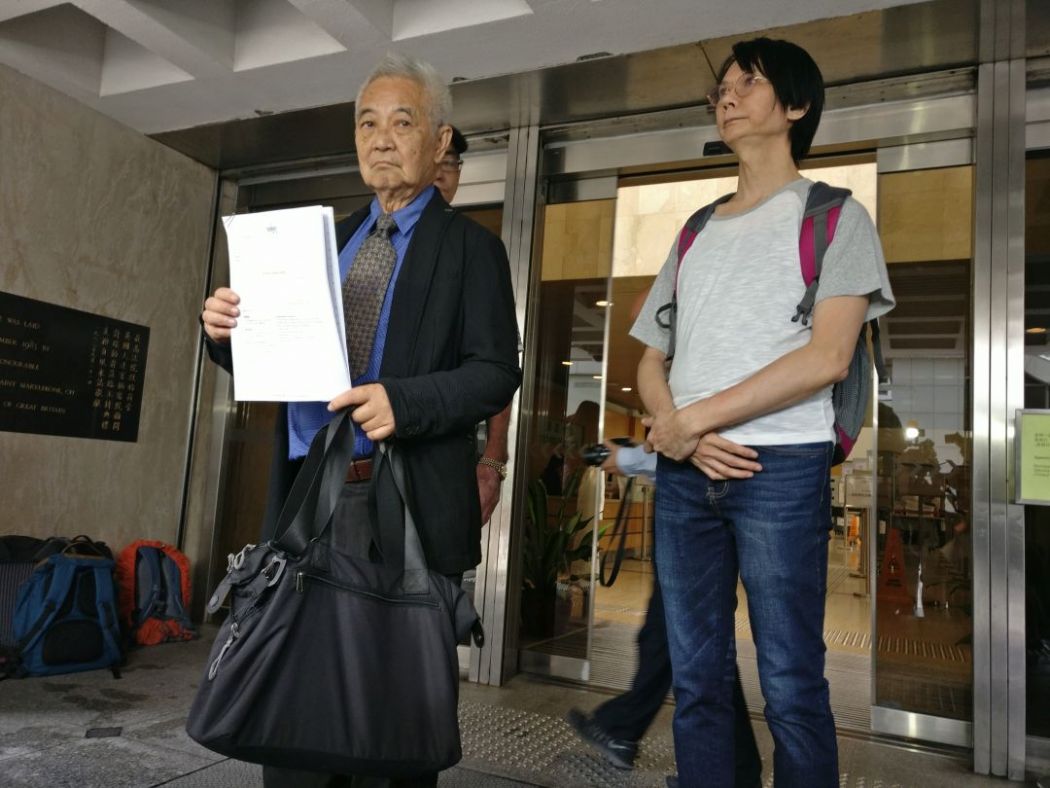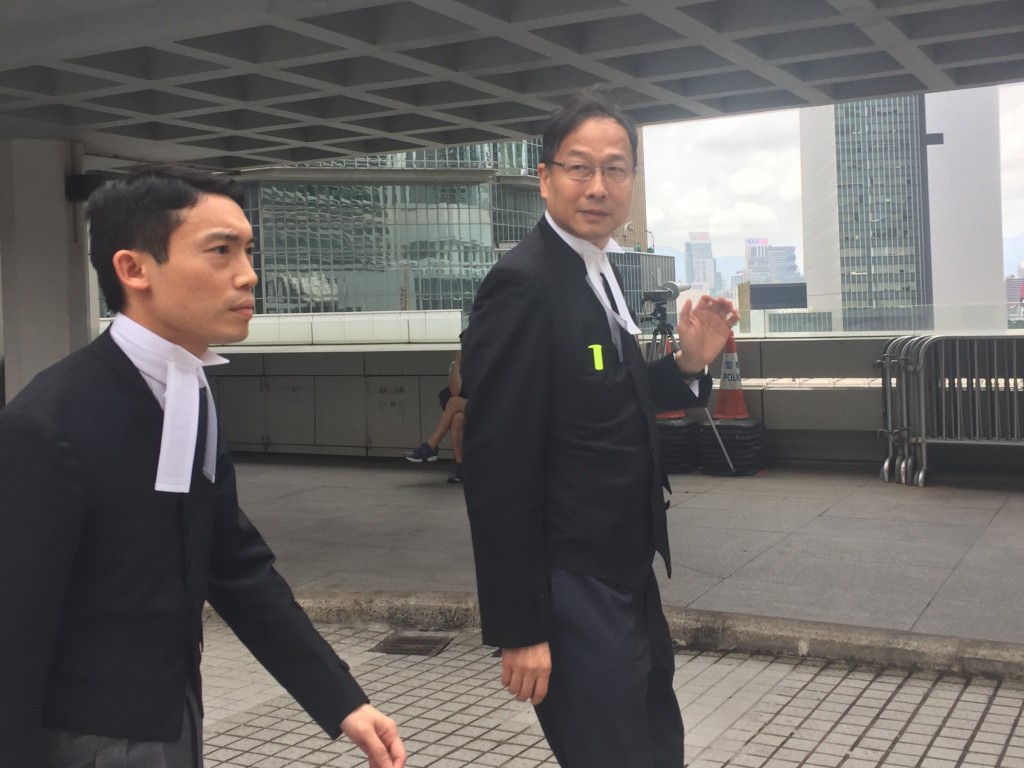The High Court on Tuesday dismissed an application by ousted lawmaker Baggio Leung and activist Kwok Cheuk-kin to halt the joint checkpoint arrangement of the Express Rail Link, which is expected to start operating in September.
Judge Anderson Chow wrote that the financial loss would be “very substantial” if the opening of the Express Rail Link were to be delayed – running into “many millions of dollars per month.” He concluded that refusing to grant the injunction carried a lower risk of injustice.

Kwok and Leung are among five applicants who launched legal challenges against the joint checkpoint arrangement. The High Court has decided to hear all of the applications together on October 30.
Under the joint checkpoint proposal, mainland law enforcement agents will conduct immigration and customs procedures at the new West Kowloon terminus, instead of at the points of departure and arrival.
Since the Express Rail Link is expected to start operation in late September, Kwok and Leung sought an interim injunction and their case was heard last Friday.
In his 15-page judgment, Chow said that – given the injunction was not a final assessment of the legal merit of either side – the court should decide in a way that minimises the risk of injustice.

“On an overall assessment of this matter, I consider it to be clear that the potential harm or damage arising from a ‘wrong’ decision to refuse to grant the interim injunction will likely be less, or less severe, as compared to the potential harm or damage which may be caused by a ‘wrong’ decision to grant an interim injunction,” Chow wrote.
“In other words, refusing to grant the interim injunction sought will, I consider, carry a lower risk of injustice,” he added.
Kwok accused the judge of taking orders from Beijing and deciding against him unfairly.
“Who lost today? It is everyone in Hong Kong,” Kwok said. “In the future, Central or the Peak could be turned into mainland jurisdiction.”

Kwok said he would consider appealing the decision, but only if the court can arrange a date before the judicial review hearing on October 30. “All I can say is, I did all I could for Hong Kong,” he said.
Leung did not appear at court on Tuesday.
‘Very substantial loss’
In his judgment, Chow accepted the government’s position that there was no chance of a “separate-location arrangement,” meaning that the suspension of the joint checkpoint plan would delay the opening of the Express Rail Link itself.
The government argued that the monthly cost of such a delay would be HK$372.6 million in lost income, HK$179.9 million in wasted operating and maintenance costs, and other non-monetary losses.
Chow said he did not need to arrive at any “definite figures” for him to make a decision, saying it could not be seriously disputed that the financial loss would be very substantial.

Nevertheless, Chow acknowledged Leung’s opposing argument: that losses will also be incurred if the Express Rail Link is allowed to operate, only for the joint checkpoint plan to be struck down later. However, applying a legal balancing exercise, Chow said the government’s argument outweighed Leung’s.
At the hearing, Leung and Kwok argued it was possible that a passenger of the Express Rail Link could suffer irreversible harm by being subject to mainland law. For example, a person could get in trouble by speaking against Communist rule while the train was still technically in Hong Kong.
In his judgment, Chow agreed with the government that such irreversible harm was only hypothetical.

“It is… a matter of free choice for any member of the public who is opposed to the Co-location Arrangement for one reason or another to decide whether to take the [Express Rail Link], or enter the Mainland Port Area, during the interim period,” he wrote.
“[The government] also points out that the possible harm or damage postulated by Mr. Leung and Mr. Kwok are purely hypothetical and, in any event, would not be suffered by them personally.”
